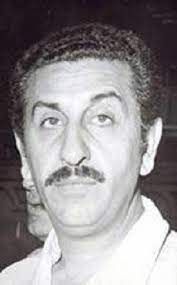In 1930, Mohammed Yousef an Najjar was born in the village of Yubna in the Ramla governorate. After he had completed preliminary school education in his village, An Najjar moved to the Al Ibrahimiya College in Jerusalem, where he completed his secondary school education.
He worked as a teacher in his village of Yubna for a year. In the 1948 Nakba, however, he was displaced from Yubna and settled in the Rafah refugee camp in the Gaza Strip.
An Najjar worked as a teacher in the Gaza Strip until 1956.
In 1951, An Najjar joined the Muslim Brotherhood, but left it in 1958.
In 1954, he was detained for four months after he had led a demonstration, demanding the compulsory recruitment of Palestinian young men. In March 1955, An Najjar was arrested for the second time because he had organised demonstrations against the settlement project, which the United Nations Relief and Works Agency (UNRWA) had attempted to implement in Northern Sinai.
In 1957, An Najjar departed to Syria onboard a sailboat. Then, he travelled to Amman.
Later, An Najjar moved from Amman to Qatar, where he was employed at the Information Department. In Qatar, An Najjar resumed his national activity, contacted Fatah leaders in Qatar, Kuwait and Saudi Arabia, and joined the movement.
In 1967, he devoted his time and effort to the struggle activity within Fatah.
In the 5th Term of the Palestinian National Council (PNC), held in Cairo in February 1969, An Najjar was elected member on the PLO Executive Committee. He was also elected Chairman of the Higher Political Committee of Palestinians in Lebanon.
An Najjar’s membership on the PLO Executive Committee was renewed in the PNC 11th Term, which convened in Cairo in January 1973. Then, he was appointed Chairman of the PLO Political Department.
On 10 April 1973, the Israeli Intelligence Agency (Mossad) assassinated An Najjar at his house on the Fardan Street in Beirut. In addition to his wife Rasmiya Abu al Kheir, Kamal Nasser and Kamal ‘Adwan were martyred in the same operation. Ehud Barak, who became Israel’s Prime Minister in late 1990s, led the operation.

